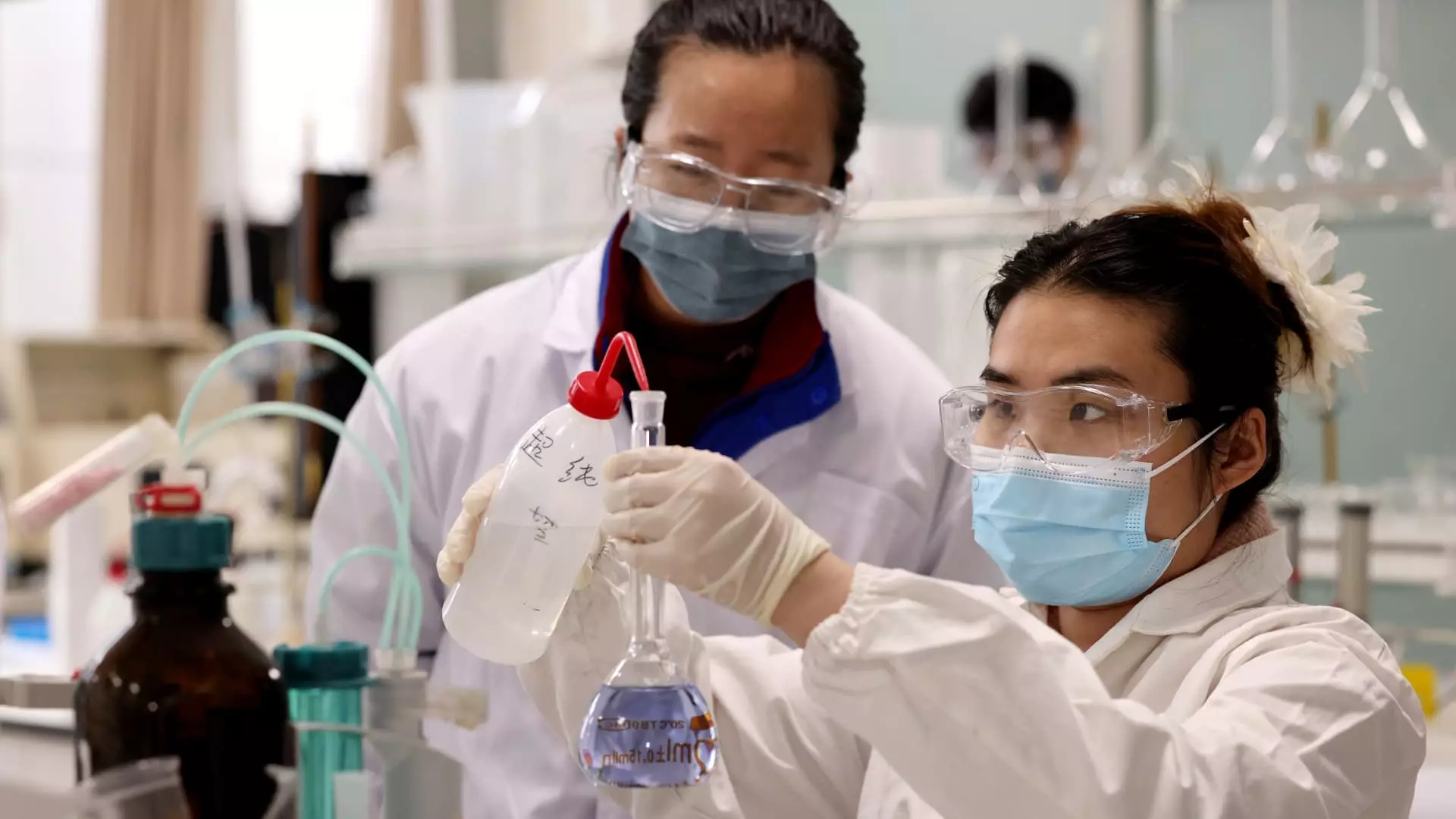In a world seemingly fixated on the dramatic standoff between the U.S. and China over artificial intelligence, there’s a quietly surging wave that could redefine not only industries but also global power dynamics: biotechnology. While discussions often orbit around AI and semiconductor supremacy, a critical shift is underway as China races ahead in biotech—a sector that will become increasingly vital in determining the economic and strategic future of nations. The Harvard Belfer Centerrecently highlighted this as an area where China’s advantages might soon eclipse those of the U.S. The implications of this shift are profound but often understated, with effects rippling out into healthcare, agriculture, and even national security.
The looming specter of a “ChatGPT moment” for biotechnology, as articulated by the U.S. National Security Commission on Emerging Biotechnology, raises urgent alarms. If China manages to lead in this transformative technology, the U.S. may find itself racing against an unwinnable clock. Acknowledging the cards on the table, one comes face-to-face with the uncomfortable truth: the U.S., long an innovator in biotech, is at risk of losing its edge due to complacency and an ineffective, disjointed strategy.
China’s Strategic Gains
Contrary to the common belief that the U.S. leads unchallenged in every high-tech field, China’s growth trajectory in biotechnology showcases an extreme focus and robust governmental investment that has been absent in the U.S. With policies encouraging rapid development and market entry, Chinese biotech firms have begun to attract not only domestic talent but also international investment. The tidal wave of capital flowing into Chinese biotech can be illustrated by AstraZeneca’s announcement of a staggering $2.5 billion investment in a Beijing research facility. This comes as China demonstrates a capacity for rapid pharmaceutical production and a regulatory environment that favors swift innovation.
Many Western giants, including U.S. and European pharmaceutical companies, are now helplessly watching as they pour billions into acquiring Chinese-developed drugs—an acknowledgment of the latter’s prowess in creating potentially life-saving treatments. The broadband of talent in China, combined with a nimble regulatory process, positions its biotech sector as not just competitive, but potentially dominant in the near future.
The Weak American Strategy
It’s alarming to note that while China invests strategically in biotech development, the U.S. has yet to unveil a cohesive or intentional biotechnology strategy. The ongoing disarray in regulatory frameworks exacerbates the risk of stagnation in American innovation. This inertia is concerning not just for stakeholders in the biotech industry but for the broader public, where access to advanced healthcare solutions is at stake. The report from the National Security Commission on Emerging Biotechnology calls for a hefty $15 billion investment in supporting domestic biotech efforts over the next five years. If this becomes just another piece of paper rather than actionable strategy, the U.S. risks losing its last foothold in a sector that could define the 21st century.
Yet, one cannot overlook the irony here: as China accelerates toward dominance in biotechnology, American firms are grappling with layoffs and idle laboratories—a stark contrast to the resource optimization that characterizes their Chinese counterparts. This self-inflicted stagnation raises ethical, economic, and strategic dilemmas such that a nation once leading the world in innovation now appears to be trailing in a pivotal sector.
The Implications of a Biotech Cold War
The brewing Cold War in biotechnology carries seismic implications, not just for the U.S. but for the entire planet. As nations grapple with shifting power dynamics influenced by biotech prowess, we must ask ourselves—what happens the day when China wields biotechnology as a weapon for geopolitical leverage? Analogous to rare earth elements, could biotechnology become a new tool for Beijing to exert influence over nations reliant on medical imports and agricultural advancements?
Indeed, Eric Rosenbach from Harvard makes a compelling argument for why cooperation between the U.S. and China in biotech is highly improbable. The rise of tensions only reinforces the likelihood that further isolationism will dominate U.S. policy—a troubling prospect considering the inherently collaborative nature of scientific advancement. If the world truly is on the brink of a “biotech Cold War,” the implications are far-reaching, stoking fears not just within government corridors but within the very fabric of global healthcare conditions.
In this context, the international community faces a daunting choice: either we facilitate dialogue and cooperation toward equitable biotech advancements or accelerate divisions that could create health and safety catastrophes on a global scale. The choices we make today will dictate the future direction of not only biotech but our collective wellbeing as interconnected societies. Instead of closing ranks, fostering shared goals around biotechnology may offer the most viable path forward that prioritizes humanity over hubris.

